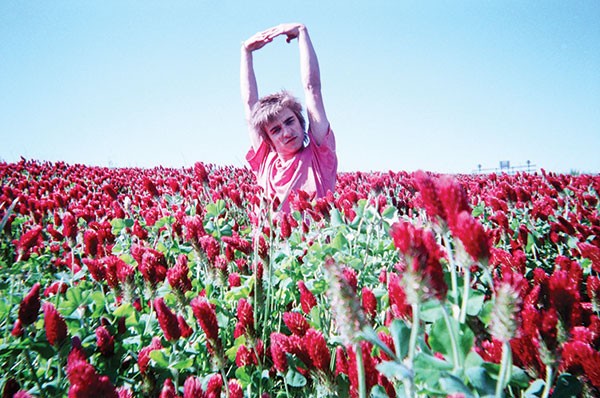While describing his Sewickley-area upbringing, Jackson Scott takes a bit of a detour.
"I don't know if this is relevant," he says, "but I feel like mentioning that the Sewickley police force is absolutely awful. They're kind of power-hungry idiots, in my opinion."
Of course, Scott — whose first record, Melbourne, was released by Fat Possum Records, in July — is simply echoing the frustrations of many who've spent their teenage years in a sleepy, upper-middle-class neighborhood, where the police seem focused on busting young stoners.
"I guess," Scott grants, "the cops are just as bored as the kids."
Despite his ardor, Scott never really got into much trouble himself. And although, he says, there was little for high school students to do that didn't involve drinking or smoking weed, he found the boredom to be conducive to his budding creativity. "It's not like there's this crazy city life to go out to," he says. "You're just kind of a kid hanging out. I would always try to go off into my own world."
The fact that Melbourne is the work of a relative loner is not surprising. Recorded on a four-track in the basement of Scott's Asheville, N.C., residence — he moved there for college — the record has a dizzy, surfy, psych-pop sensibility, but feels less like a day at the beach than harsh sunlight on a frigid winter day. Scott's self-professed devotion to Syd Barrett is evident, but the loose, lo-fidelity nature of the recording, coupled with Scott's androgynous, sometimes high-pitched vocals, can be either exquisitely dreamy or slightly nightmarish, depending on your state of mind.
Melbourne was recorded as a solo project, but, for the sake of touring, Jackson Scott has grown into a band. Aaron Kostial, a friend of Scott's from high school (and a fellow North Carolina transplant) plays drums, with Chase Gorter, whom Scott met in Asheville, on bass.
Scott started playing the piano at age 8, and later moved on to drums and guitar. "The funny thing about the town I grew up in is, there's big, like, jam-band love." he says, recalling early musical experiences. "I was never a big fan, but I did jam with some kids in high school. That was always kind of fun, just kind of getting into that mentality of playing music."
After graduating from high school in 2011, Scott enrolled at University of North Carolina, knowing only that he wanted to do "something creative." He'd long planned to pursue filmmaking but, as music began to take on a greater role in is life, those plans faded. "Music just became more fun for me, especially when I started playing guitar [and] it became easier for me to write songs," he recalls. "I kind of went [to Asheville] with that mentality. I just wanted to, you know, play some music, meet some friends."
Scott never got around to actually declaring a major, and he dropped out after his first year. "I was basically treating [music] like a job. I wasn't going to school. I was spending literally every day working on [Melbourne] for four or five months."
When the record was finally finished, Scott posted it for free online, and began sending it to as many outlets as possible. "[At the time] I was thinking, how exactly does one get signed to a record label? How exactly does one put something out on vinyl? Because that was my main goal," he says. And before long, bloggers started to write about the record, Pitchfork featured Scott in its trend-setting "Rising" column, and emails from labels started rolling in. Essentially, he says, "It started to kind of blow up."
More recently, Scott has attracted attention for his second single, "Sandy," which he wrote about the Sandy Hook shooting. It's one of the record's most upbeat-sounding tracks, but the lyrics — in which Scott speculates what might have been going through the children's minds that day, and laments the young-adulthoods they'll never have — are heart-wrenching, and difficult to listen to.
The music video, released earlier this month, aimlessly follows a group of young people, drinking and laughing at a party that probably looks a lot like those thrown by bored teenagers back in Scott's hometown. For some, the juxtaposition made the song more distressing. Robin Hilton, who interviewed Scott for NPR Music, wrote: "While the song and video are thoughtfully and respectfully rendered, they leave you wondering whether some subjects are simply off limits."
For Scott, it's important to be able to express life at both its brightest and its darkest: "I think one of my goals, artistically, is to try to take things as far as I can go. I don't think there should be any boundaries with art. I don't see why anyone should have to shy away from anything."
And, though he didn't intend for anyone to focus on one particular song, he doesn't seem particularly surprised, or bothered by the attention. "I'm just really intrigued by duality and paradoxes," he explains. "There's always going to be evil and absolutely awful stuff, and there will always be a lot of really beautiful, pure, innocent stuff. And if you ignore one of them, you're ignoring both of them. I think it's interesting to take it all into consideration."














